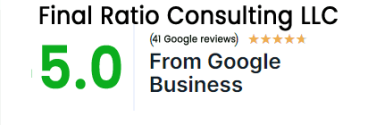VAT Accounting Service
VAT Accounting Services
Final Ratio provides expert VAT accounting services, helping industries navigate the complexities of VAT regulation. By implementing VAT systems effectively, corporations can ensure they remain compliant with the law while minimizing tax liabilities and maximizing financial accuracy. This page explores the importance of VAT implementation, the process involved, and how we can assist in making the transition seamless for your business.
The implementation of Value Added Tax (VAT) in the UAE marked a significant milestone for the country’s economic development. VAT, a widely used consumption tax, has been adopted by over 150 countries worldwide, and the UAE became one of the latest nations to introduce this tax. VAT is charged at each stage of the supply chain, with collecting and remitting VAT on behalf of the government. Ultimately, consumers bear the cost of VAT on the goods and services they purchase.


Our Service
Why Choose us for VAT Accounting Service?
What is VAT Accounting Services?
VAT Accounting Services refers to the process of establishing the necessary structures and systems within a company to comply with VAT regulations. This includes registering for VAT, configuring accounting systems, and ensuring that VAT is calculated, reported, and remitted accurately. In Dubai, VAT implementation involves complying with the UAE’s VAT laws, which came into effect on January 1, 2018.
The standard VAT rate in the UAE is 5%, and it applies to most goods and services. However, there are some exceptions and exemptions, and they must carefully track their taxable supplies to ensure they comply with VAT rules. VAT is generally paid by the end consumer, but they are responsible for collecting and remitting this tax to the Federal Tax Authority (FTA).


Why is VAT Accounting Service Important?
VAT Accounting Services is crucial for businesses in Dubai for several reasons:
VAT Accounting Service by Us
We provide expert VAT Accounting Services services in Dubai to ensure that you comply with VAT laws and regulations. Our team of experienced VAT consultants offers a full range of services to assist with every stage of VAT implementation, including
- Business Environment Analysis: We conduct a thorough analysis of your processes to understand the areas where VAT will have the most impact. By identifying VAT-related challenges early, we help in implementing VAT systems that work for their specific needs.
- VAT Training: We offer customized training sessions for key personnel to ensure that they understand the VAT system and can efficiently handle VAT-related tasks. This includes training on how to issue VAT invoices, record VAT transactions, and submit VAT returns.
- VAT Registration Assistance: We assist with the VAT registration process, ensuring that all necessary forms and documents are submitted correctly to the FTA. Our team handles the registration process efficiently, saving time and effort.
- VAT Blueprint Creation: We help to create a detailed VAT blueprint, outlining all necessary steps for VAT implementation. This ensures that businesses have a clear plan in place for adopting VAT and can execute the plan effectively.
- IT System Configuration: We assist with configuring their IT and accounting systems to comply with VAT requirements. This includes setting up VAT-enabled software, updating charts of accounts, and ensuring that the system is capable of generating accurate VAT reports.
- Ongoing VAT Support: Our VAT Accounting Services don’t end with VAT implementation. We offer ongoing support to help with VAT compliance, including VAT return filing, audits, and updates on any changes to VAT regulations.
Key Steps in VAT Accounting Service
The process of VAT accounting services requires careful planning and execution. Businesses must evaluate their current systems, make necessary adjustments, and ensure that they are in full compliance with VAT regulations. Below is an overview of the steps involved in VAT implementation:
VAT Registration
One of the key requirements ofVAT Accounting Services in Dubai is VAT registration. Businesses must register for VAT with the Federal Tax Authority (FTA) if their taxable supplies exceed a certain threshold. VAT registration allows businesses to collect VAT on behalf of the government and claim VAT refunds on eligible purchases. Final Ratio assists businesses with the VAT registration process, ensuring all forms and procedures are correctly handled.
VAT Return Filing
Once VAT is implemented, businesses must file VAT returns regularly, typically on a quarterly or monthly basis, depending on their size and taxable supplies. VAT returns include information on the VAT collected on sales, the VAT paid on purchases, and the overall VAT liability. Filing VAT returns on time is essential to avoid penalties and ensure that the business remains compliant with VAT laws.
FAQ
Frequently asked questions.
VAT implementation refers to the process of setting up a system within your business to comply with VAT regulations. This includes registering for VAT, configuring accounting systems, and ensuring that VAT is calculated and reported correctly. Contact Final Ratio VAT Consultant for implementation
Businesses in Dubai that have taxable supplies exceeding the VAT registration threshold of AED 375,000 are required to implement VAT. Additionally, businesses with taxable supplies below this threshold may register voluntarily. Contact Consultant now
The timeline for VAT implementation depends on the size and complexity of the business. On average, it may take several weeks to a few months to fully implement VAT, including system configuration, staff training, and registration. Get Expert VAT Consultation
VAT implementation helps businesses comply with tax regulations, improve financial transparency, reduce the risk of penalties, and optimize their VAT position to reduce tax liabilities.
Final Ratio offers a comprehensive range of VAT implementation services, including VAT registration, training, system configuration, and ongoing support to ensure your business stays compliant with VAT regulations.

